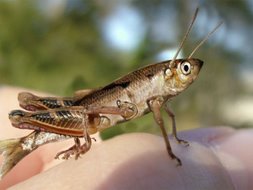Evolution & Ecology Research Centre Seminar Series
LOCATION: Biomed lecture theatre F
TIME: 4-5pm Thursday
DATE: 29th May 2008
DRINKS: There will be celebrations after the seminars (in the biomed foyer).
This week we have 2 PhD exit seminars. Please come along and help Susi and Jason celebrate the completion of their PhDs
Dr Susanne Zajitschek
The interplay between sexual selection, inbreeding and inbreeding avoidance in the guppy
ABSTRACT: Inbreeding can have profound negative effects on individuals by reducing fertility and viability. In populations, inbreeding depression can reduce growth rates and increases extinction risk. The aims of my thesis were to investigate inbreeding depression in male guppies (Poecilia reticulata) and to study the evolution of mechanisms for inbreeding avoidance in females, using guppies from a feral population in Queensland. Male guppies are highly polymorphic in their sexual ornamentation, indeed they show one of the most extreme polymorphisms observed in nature. Female guppies exhibit complex mate choice based on preferences for ornamentation, as well as social context. I examine how these factors of inbreeding avoidance alter sexual selection.
In male guppies I found strong inbreeding depression in male sperm numbers and inbreeding resulted in low fertility under sperm competition. On population level, inbreeding depression was manifest in reduced growth rates, predominantly in the early stages of inbreeding. Inbreeding avoidance mechanisms seem to have evolved in females: they prefer courtship displays of non-inbred males, unfamiliar males, and males with rare patterns. This preference might increase the mating success of immigrants, and may have evolved to facilitate the avoidance of inbreeding. Together with context-independent preferences for ornament combinations it also offers an explanation for the maintenance of polymorphism in this species.
http://www.bees.unsw.edu.au/school/researchstudents/zajitscheksusi.html

